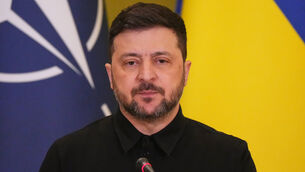Indian premier visits troubled Kashmir
Atal Bihari Vajpayee was today becoming the first Indian prime minister in 16 years to hold a public rally in troubled Jammu-Kashmir state.
He was to address a carefully frisked crowd at a sports ground in Srinagar, the focus of a 13-year battle by Islamic militants fighting for Kashmir’s independence or its merger with Pakistan.














